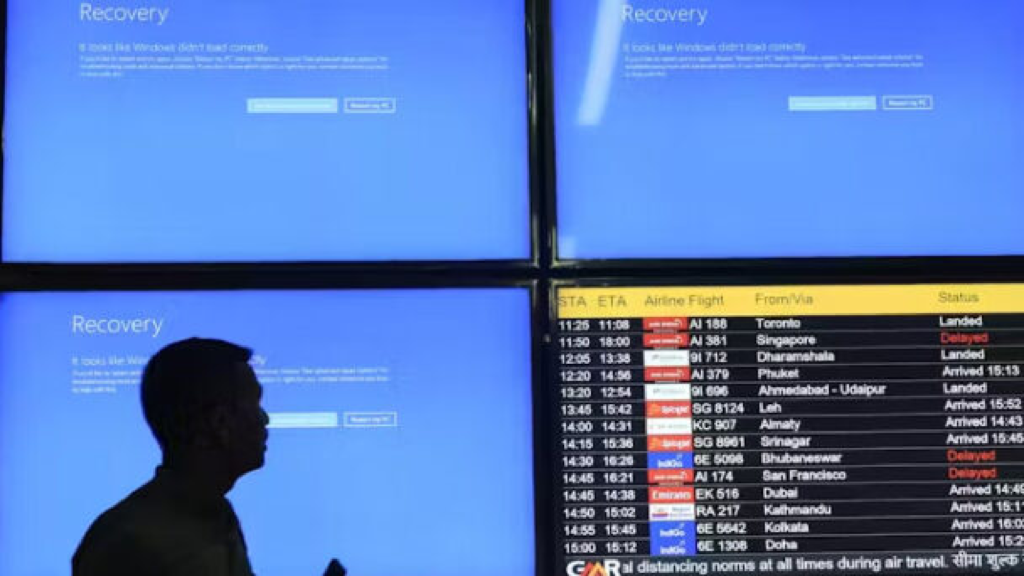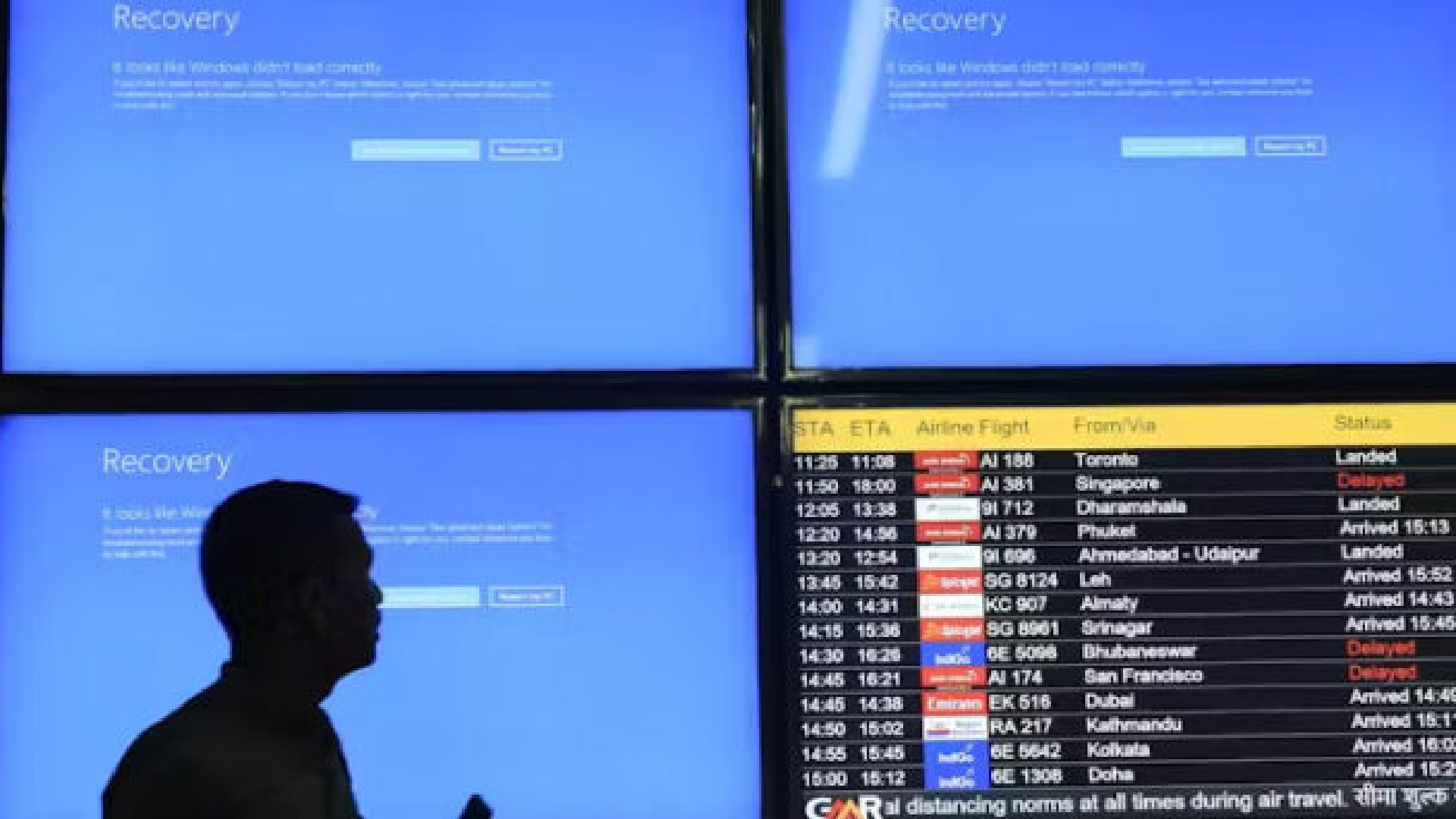
Global tech outage disrupts industries, highlights online risks
- entspos
- 9:07 pm
- July 19, 2024
On July 19, a global tech outage disrupted industries ranging from travel to finance before services gradually came back online after several hours. This incident underscored the risks associated with the global shift towards interconnected digital technologies.
The outage was triggered by a software update from global cybersecurity firm CrowdStrike (CRWD.O), which caused system problems that grounded flights, disrupted broadcasts, and left customers without access to essential services like healthcare and banking.
Over the past two decades, accelerated by the COVID-19 pandemic, governments and businesses have become increasingly reliant on a few interconnected technology companies. This dependency explains why a single software issue had such widespread effects.
CrowdStrike, an $83 billion company with over 20,000 subscribers worldwide, including tech giants like Amazon (AMZN.O) and Microsoft (MSFT.O), found itself in the spotlight. CEO George Kurtz revealed on social media platform X that a defect in a content update for Windows hosts affected Microsoft customers. Kurtz apologized on NBC News’ “Today” program, stating that many customers were rebooting their systems and restoring operations.
CrowdStrike shares dropped but later recovered slightly, ending down 10.8% on Friday afternoon. Meanwhile, competitors SentinelOne (S.N) and Palo Alto Networks (PANW.O) saw their shares rise by 8.8% and 1.5%, respectively. Microsoft shares fell by about 1%.
Microsoft’s Chief Communications Officer, Frank Shaw, said on X that the company was aiding customers in recovering their systems after the CrowdStrike update caused global disruptions to Windows systems. Ciaran Martin, a professor at Oxford University and former head of the UK National Cyber Security Centre, noted the unprecedented scale of the outage.
A White House official confirmed that U.S. President Joe Biden was briefed on the incident, and U.S. Secretary of State Antony Blinken indicated that the outage was not a result of a malicious attack. However, the U.S. Cybersecurity and Infrastructure Security Agency observed that hackers were exploiting the situation for phishing and other malicious activities.
As companies and institutions began to restore normal services, experts highlighted the outage’s revelation of the vulnerabilities in our increasingly online world. Gil Luria, a senior software analyst at D.A. Davidson, pointed out the complexity and interdependence of global computing systems, emphasizing their susceptibility to errors.
The tech sector sell-off deepened on Wall Street, with the main indexes falling and the Cboe Volatility index (.VIX), Wall Street’s “fear gauge,” hitting its highest level since early May. The dollar strengthened as the outage unsettled investors.
Air travel faced immediate impacts, as flight scheduling disruptions led to delays and cancellations. According to aviation analytics firm Cirium, out of more than 110,000 scheduled commercial flights on Friday, 2,691 were canceled, with more expected. Airports worldwide resorted to handwritten boarding passes, causing further delays.
Banks and financial services companies warned customers about disruptions, and traders experienced transaction execution problems. The London Stock Exchange Group (LSEG.L) reported issues with its Workspace news and data platform, regulatory news service, and currency prices, but most were resolved by midday.
The New York Stock Exchange and Nasdaq reported that U.S. markets were operating normally. Government agencies were also affected, with disruptions reported by the Dutch and UAE foreign ministries.
U.S. healthcare providers faced outages affecting call centers, patient portals, and other operations. Boston’s Mass General Brigham treated only urgent cases, and Tufts Medical Center warned of potential delays and rescheduling. In Britain, booking systems used by doctors were offline, and Sky News apologized for being unable to transmit live. Manchester United postponed a ticket release due to the outage.
In New York City, jail cameras, arrest processing software, and other governmental functions were impacted, though 911 and emergency systems remained operational.
By the end of the day, more companies reported a return to normal service, including Spanish airport operator Aena (AENA.MC), U.S. carriers American Airlines (AAL.O), Frontier, Spirit (SAVE.N), Dubai International Airport operator, and Australia’s Commonwealth Bank (CBA.AX). U.S. Transportation Secretary Pete Buttigieg stated that transportation system issues seemed to be resolving and expected normal operations by Saturday, noting that the Federal Aviation Administration was unaffected.















